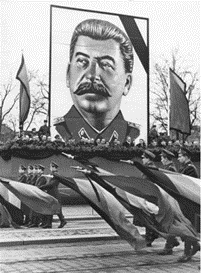Antonio Lopez de Santa Anna was one hell of a guy, or at least that’s what he always told people, even if they never asked. Aside from being a military hero with grandiose titles, all of which he gave himself, he also served as President of Mexico eleven non-consecutive times. Most famous today as that guy who led the Mexican Army at the Alamo, we should perhaps better remember him as the reason we have chewing gum.
Tony first became a household name during the Mexican Revolution, when he mostly stayed out of the fighting and remained loyal to Spain, switching sides only when it became obvious they were going to lose. In the following decade of political chaos, he became a man who always knew how to appear at the head of a parade. Every time a new political movement seized power or a military victory ensured the survival of the new nation, Tony always made sure he was at the forefront. This eventually led to him getting elected President in 1833, a job he found so boring that he left the running of things largely to his Vice President while he took naps, spent government money as if it was his own, and attended cock fights. When people had the balls to point out he wasn't a very good president he declared himself dictator for life, a move that resulted in numerous rebellions across the country, including an area we now call Texas. Tony tried to bring these areas back under his control, resulting in the Battle of the Alamo, but was ultimately unsuccessful, which in turn led to him being deposed as dictator. Not really being welcome anymore in Mexico, Tony went into exile in the United States.
In 1838, France invaded Mexico in the tastefully named Pastry War. Apparently not having one single good general, the Mexican government recalled Tony to lead their troops. Tony not only failed to win the war, he also lost a leg, which he buried with full military honors. Despite this, Tony still managed to get himself elected president again in 1839, which of course was soon after followed by him declaring himself dictator again. This time he lasted five years before he was deposed and exiled to Cuba. In 1846, the United States invaded Mexico. Apparently having no pattern recognition whatsoever, the Mexican government again invited Tony to return. Upon his arrival he declared himself dictator again and took control of the country until he was defeated by the U.S. two years later and forced to go into exile yet again. In 1852, Tony was forgiven and allowed to return home to Mexico. Within two years he managed to get himself elected president again, declared himself dictator again, and was exiled again. The man was a bit of a one trick pony.
Tony spent a large part of his newest exile living in New York City, where he spent thousands of dollars on fighting roosters and coming up with get rich schemes in order to procure funds to raise a personal army to invade Mexico. One of these ideas was the importation of chicle from Mexico. Chicle is a sticky sap harvested from the sapodilla tree. Tony hoped to use chicle as an alternative for rubber, which was expensive as hell at the time. In 1869, he imported a ton of it using money lent to him by a man named Thomas Adams. Unfortunately, the idea never really panned out and Tony left the United States soon after, leaving Tom Adams with a ton of worthless chicle. Not knowing what else to do, Tom decided to try selling the chicle as a chewable product. Tom had often seen Tony chewing chicle, a common practice in the Yucatan for centuries, which the old general claimed helped calm his nerves. Amazingly enough, consumers loved chewing on the chicle, especially after Adams started adding flavors, and the chewing gum industry was born.
Old Tony was finally allowed to return home to Mexico for the final time in 1874. Being practically blind and decidedly too old to declare himself dictator again, he instead died completely broke in 1876 at the age of 82. As for Tom Adams, the rapid growth in popularity of his chewing gum made him a very wealthy man, though he never spent a cent on invading Mexico. Today he is considered the father of a $25.8 billion worldwide industry, though since the 1960's most chewing gum has been made with synthetic rubber rather than chicle. Either way, not bad for a man cheated by one of the most notorious men in Mexican history.
Image: https://en.m.wikipedia.org/wiki/File:Antonio_Lopez_de_Santa_Anna_c1870.jpg



